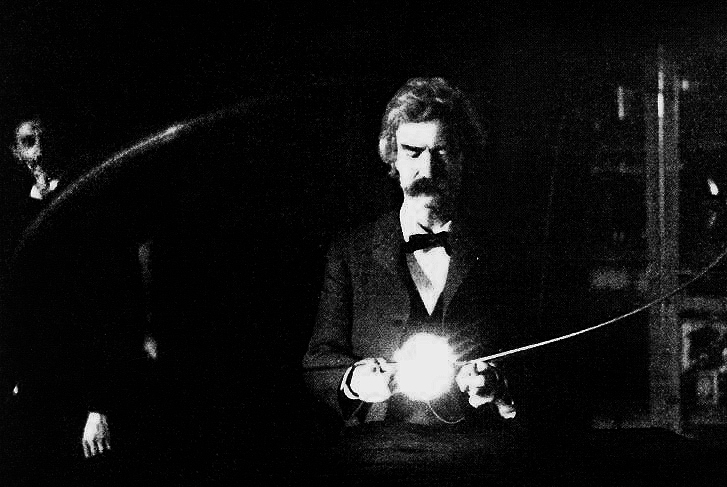Then there was the disintegration of the company's auditor, the kind of revelation that would normally make people reexamine a high-flying stock, but as the inimitable Matt Levine points out, with Trump Media this sort of thing doesn't matter.
(From his newsletter)
The funniest job in public accounting is now open:
The Securities and Exchange Commission accused the auditor of Donald Trump’s social-media company of massive fraud affecting hundreds of companies and more than 1,500 regulatory filings.
BF Borgers CPA PC and its founder, Benjamin Borgers, will be permanently suspended from practicing and appearing as accountants before the SEC, and will pay a total of $14 million in fines to settle the probe, the SEC said in a Friday release.
“Ben Borgers and his audit firm, BF Borgers, were responsible for one of the largest wholesale failures by gatekeepers in our financial markets,” Gurbir Grewal, the SEC’s enforcement chief, said in a statement. “Borgers and his firm completely abandoned that role, but thanks to the painstaking work of the SEC staff, Borgers and his sham audit mill have been permanently shut down.” …
Trump Media & Technology Group Corp. became a public company in March. Trump Media “looks forward to working with new auditing partners in accordance with today’s SEC order,” a representative for the company said.
I’m kidding, the job isn’t actually open; last week Trump Media “engaged Semple, Marchal & Cooper, LLP (‘SMC’) as BF Borgers’ replacement.” Here is the SEC’s press release; here is the order shutting down Borgers; here is the SEC staff statement on what to do if you are a pubic company that used Borgers and now needs to find a different auditor. [2]
I have said before that, since Trump Media’s financial statements don’t matter — to its shareholders, to its managers, to its stock price, to its value proposition for its promoters — it doesn’t especially matter that Trump Media used a “sham audit mill.” Still it’s not, you know, good. When it turns out that a company has a fake auditor, that raises some questions. I guess not that many questions. When Trump Media went public, I would not have guessed that it employed a fake auditor, because I was not aware that that was a thing. But if someone’s going to employ a fake auditor, why not Trump Media.
But the fun doesn't stop there. One of the safety valves that keep the upward pressure from getting too high on these stocks is shorting. Grifters trying to inflate stock bubbles hate short sellers. The classic case being Elon Musk who has demonized them to the point of antichrist status, but Trump Media seems to have hit upon a new innovation in that direction.
Trump Media is making a point of telling its shareholders how to prevent their stock from being loaned to short sellers — who bet the price of the shares will drop.
The short-selling-prevention tips posted Wednesday on Trump Media’s website come as its DJT stock has fallen sharply in price since it began being public trading on March 26 — and as short sellers have taken a keen interest in the owner of the Truth Social app despite relatively high fees to finance such trades.
“It certainly shows concern” about short selling of Trump Media stock, said Kevin Murphy, a business professor at the University of Southern California who is an expert on executive compensation.
“I haven’t seen it before,” Murphy said when asked how common it is for companies to give shareholders instructions on how to thwart short sellers.
“Managers who ... think the stock is undervalued aren’t going to be overly concerned about short sellers,” he said.
Then again, that might have more to do with this.
Devin Nunes says it’s “very suspicious” that Trump Media’s stock price has dropped so much, he thinks a RICO investigation should be done, and although he prefers to focus on tech he is prepared to launch an investigation himself if Congress doesn’t do something. pic.twitter.com/37ANpKlwAU
— Ron Filipkowski (@RonFilipkowski) April 27, 2024
From CNBC:
Shares of Trump Media shot up more than 9% on Wednesday, hours after the company revealed it was urging House Republican committee leaders to investigate possible “unlawful manipulation” of its stock.
The stock boost also came one day after a deadline passed for former President Donald Trump, the company’s majority owner, to become eligible for an additional 36 million “earnout” shares. That stake was worth more than $1.3 billion as of the share price at 3:25 p.m. ET.
It was unclear what spurred the sudden rise of Trump Media, which began the trading day down nearly 5% before turning positive later Wednesday morning.
The company’s CEO, Devin Nunes, in a letter Tuesday asked the GOP chairs to probe “anomalous trading” of the stock in order to gauge the extent of the alleged manipulation and “whether any laws including RICO statutes and tax evasion laws were violated.”
The request doubles down on Nunes’ claim that Trump Media, which trades under the ticker DJT, is the apparent victim of “naked” short selling, the practice of selling a company’s shares without first borrowing them for that purpose.
Trump Media, which began trading on the Nasdaq on March 26 after completing a lengthy public merger, was far and away the most expensive U.S. stock to short as of early April.
I'm not going to try to unravel this or comment any further except to share a quote that meme stocks always bring to mind.






